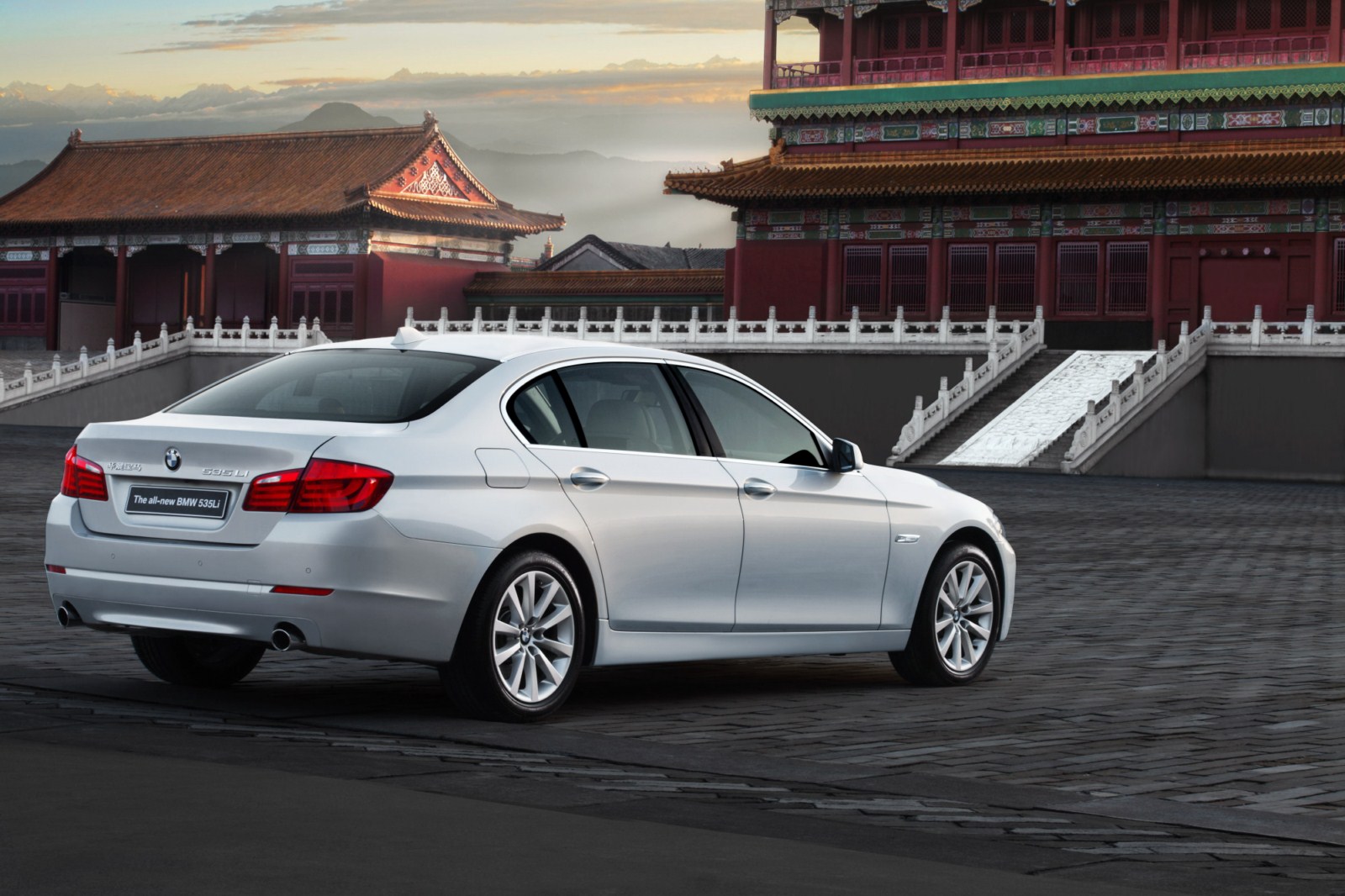Are BMW And Porsche's China Problems A Sign Of Broader Industry Issues?

Table of Contents
Declining Sales and Market Share for Premium Brands in China
The premium automotive segment in China, once a haven for brands like BMW and Porsche, is experiencing a significant downturn. This decline isn't isolated; it reflects broader shifts in the market landscape.
Intensified Competition from Domestic Chinese Automakers
- The rise of electric vehicle (EV) manufacturers like BYD, NIO, and Xpeng is dramatically reshaping the competitive landscape. These domestic brands are not only producing high-quality EVs but are also aggressively expanding their market share.
- Chinese automakers are increasingly producing sophisticated and affordable vehicles, directly challenging the dominance of established international brands in various segments, including luxury cars.
- Government incentives heavily favor domestic automakers, providing them with a competitive edge in terms of pricing and access to resources. This preferential treatment further squeezes the margins of foreign brands.
Shifting Consumer Preferences in China
- Chinese consumers are increasingly prioritizing electric vehicles and innovative technology features, a shift that has caught some international brands off guard. The demand for cutting-edge technology, such as autonomous driving capabilities and advanced driver-assistance systems (ADAS), is rapidly growing.
- A notable trend is the growing preference for local brands among Chinese consumers, driven by a sense of national pride and the perception of better value for money.
- Social media and online reviews play a powerful role in shaping brand perception and influencing purchasing decisions. Negative reviews or perceived shortcomings can significantly impact sales.
Economic Slowdown and Geopolitical Factors
- China's economic slowdown has directly impacted luxury car sales, as consumers become more cautious about high-ticket purchases. This economic uncertainty affects consumer confidence and spending habits.
- Trade tensions and geopolitical uncertainties add further complexity to the market, creating volatility and impacting investment decisions. These external factors add to the challenges faced by international brands.
Supply Chain Disruptions and Production Challenges
Beyond market dynamics, BMW and Porsche, like many other automakers, are grappling with significant supply chain disruptions.
Global Chip Shortage and its Impact on Production
- The global semiconductor shortage has severely hampered vehicle production, leading to delays and unmet customer demand. This shortage disproportionately affects manufacturers relying on complex, high-tech components.
- Delayed deliveries have resulted in lost sales and frustrated customers, damaging brand reputation and impacting market share. The inability to meet demand weakens brand positioning.
Logistics and Transportation Bottlenecks
- Navigating the complexities of transporting vehicles and parts within China presents considerable logistical challenges. Infrastructure limitations and inefficiencies contribute to delays and increased costs.
- COVID-19 restrictions and port congestion have further exacerbated these issues, disrupting supply chains and impacting production schedules. These logistical nightmares lead to production slowdowns and higher expenses.
Rising Raw Material Costs
- Inflation and rising raw material costs significantly impact production expenses and profitability. The increased cost of manufacturing reduces profit margins and can necessitate price increases, impacting competitiveness.
- This pressure on profitability necessitates strategic adjustments to maintain margins and ensure sustainable operations within the volatile Chinese market.
Adapting to the Evolving Chinese Automotive Landscape
To thrive in this dynamic environment, BMW and Porsche must adapt their strategies to the evolving Chinese automotive landscape.
The Importance of Electrification and Digitalization
- Investment in electric vehicle technology and charging infrastructure is paramount for success in the Chinese market. The transition to EVs is not just a trend; it's a necessity for survival.
- Digital connectivity and autonomous driving features are becoming increasingly crucial to attract discerning Chinese consumers, who value technological advancements. These features can be significant differentiators in the market.
Localization Strategies and Partnerships
- Establishing local partnerships and manufacturing facilities in China is crucial to reduce costs, improve responsiveness to market demands, and navigate local regulations effectively. A localized approach is essential to long-term success.
- Adapting product offerings and marketing campaigns to resonate with the unique preferences and cultural nuances of the Chinese market is also vital. Understanding the Chinese consumer is critical.
Meeting the Needs of a Sophisticated Consumer Base
- Understanding the unique preferences and demands of Chinese consumers is critical. This includes a deep understanding of their values, aspirations, and buying behaviors.
- Exceptional branding, customer service, and robust after-sales support are essential for building trust and loyalty in a highly competitive market. A premium experience is expected and must be delivered.
Conclusion: Analyzing BMW, Porsche, and the Future of the Automotive Industry in China
The challenges faced by BMW and Porsche in China highlight a complex interplay of market shifts, supply chain disruptions, and the rapid evolution of the automotive industry. While these luxury brands face specific issues, their struggles also reflect broader trends affecting the global automotive sector. The increased competition from domestic Chinese brands, the shift toward electric vehicles, and the impact of economic and geopolitical factors are challenges that all automakers must address. The question remains: Are these problems simply growing pains for established luxury brands in a rapidly changing market, or do they signal a more profound shift in the global automotive landscape? What strategies do you think global automakers should adopt to navigate the complexities of the Chinese automotive market? Share your insights on the future of premium brands in this dynamic environment.

Featured Posts
-
 Barcelonas 4 3 Win Over Real Madrid First Reactions And Highlights
May 29, 2025
Barcelonas 4 3 Win Over Real Madrid First Reactions And Highlights
May 29, 2025 -
 Gyujtoknek Szolo Ajanlat Lidl Akcios Termekek
May 29, 2025
Gyujtoknek Szolo Ajanlat Lidl Akcios Termekek
May 29, 2025 -
 Aftenposten Topp Hedret Arets Redaktor
May 29, 2025
Aftenposten Topp Hedret Arets Redaktor
May 29, 2025 -
 Sevilla Vs Real Madrid Immediate Reactions To The 2 0 Defeat
May 29, 2025
Sevilla Vs Real Madrid Immediate Reactions To The 2 0 Defeat
May 29, 2025 -
 Nyhetsvarsel Oslo Stor Brann Fire Bater Involvert
May 29, 2025
Nyhetsvarsel Oslo Stor Brann Fire Bater Involvert
May 29, 2025
Latest Posts
-
 Dragons Den Star Backs Life Changing Moroccan Childrens Charity
May 31, 2025
Dragons Den Star Backs Life Changing Moroccan Childrens Charity
May 31, 2025 -
 From Dragons Den To 40 Higher Profits
May 31, 2025
From Dragons Den To 40 Higher Profits
May 31, 2025 -
 Ingleby Barwick Bannatyne Health Club Padel Court Project
May 31, 2025
Ingleby Barwick Bannatyne Health Club Padel Court Project
May 31, 2025 -
 Life Changing Childrens Charity In Morocco Gains Dragons Den Stars Backing
May 31, 2025
Life Changing Childrens Charity In Morocco Gains Dragons Den Stars Backing
May 31, 2025 -
 Padel Court Development Update Bannatyne Health Club Ingleby Barwick
May 31, 2025
Padel Court Development Update Bannatyne Health Club Ingleby Barwick
May 31, 2025
